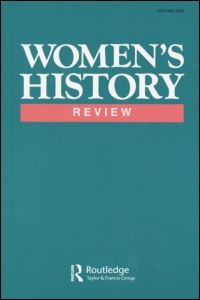
Women's History Review
Volume 19, Issue 4, Sep 2010
Pages 523-546
- DOI: 10.1080/09612025.2010.502398
- Print ISSN: 0961-2025
- Online ISSN: 1747-583X
Feminist Inheritances and Foremothers: the beginnings of feminism in modern India
- By
- Padma Anagol
This article illumines the nature and content of modern Indian feminism, tracing its beginnings in the great nineteenth‐century social and religious reform movements in Maharashtra, Western India. Early feminist theory is tracked in the theories of women’s subordination proposed by Christian and Hindu feminists. The linguistic sophistication in feminist genealogy is revealed through women’s critiques of Indian society and gender relations, especially the formation of two key feminist concepts: condition of the ‘stri‐jati’ (womankind) and ‘bhaginivarg’ (sisterhood), aided by the ‘women’s press’ in the Marathi language. Their attacks on the shastras (religious texts) is considered as an important marker in their progression towards feminism. The article closes with an examination of women’s self‐assertion movements through the utilisation of law courts. In doing so, it counters the current historiography by arguing that if Indian patriarchy felt under siege during the Age of Consent (1891) controversy, it can only be explained by the threat posed by women’s agency.